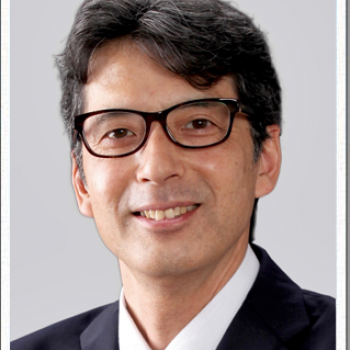Kazuto Kato: the ethics of editing humanity
By Gary Humphreys,
Bulletin of the World Health Organization
| 09. 01. 2021
Photo from Kazuto Kato’s biography at
University of Oxford’s Faculty of Law
Gary Humphreys talks to Kazuto Kato about the ethical and societal challenges posed by biotechnologies that allow for the editing of the human genome.
Q: You started out working in developmental biology. How did you become interested in the field of ethics and governance of biomedicine?
A: As a student, I always had a broad interest in the societal issues related to biological science and its application and was actually a member of a student club that focused on such issues. I was also encouraged to look at issues outside the laboratory by my uncle, Professor Shuzo Nishimura, a pioneer in the field of health economics in Japan. Of course, I also had nine years at Kyoto University and four years at the University of Cambridge with Sir John Gurdon studying biology, with a focus on stem cell biology and genomics. This background has helped me navigate what is sometimes complex terrain.
Q: Given that complexity, can you start by giving our readers a simple definition of genomics...
Related Articles
By Jonathan Matthews, GMWatch | 12.11.2025
In our first article in this series, we investigated the dark PR tactics that have accompanied Colossal Bioscience’s de-extinction disinformation campaign, in which transgenic cloned grey wolves have been showcased to the world as resurrected dire wolves – a...
By Jessica Hamzelou, MIT Technology Review | 11.07.2025
This week, we heard that Tom Brady had his dog cloned. The former quarterback revealed that his Junie is actually a clone of Lua, a pit bull mix that died in 2023.
Brady’s announcement follows those of celebrities like Paris...
By Lauran Neergaard, AP News | 11.03.2025
WASHINGTON (AP) — The first clinical trial is getting underway to see if transplanting pig kidneys into people might really save lives.
United Therapeutics, a producer of gene-edited pig kidneys, announced Monday that the study’s initial transplant was performed successfully...
By Meagan Parrish, PharmaVoice | 10.10.2025
When CEO Ben Lamm steps into the spotlight, it’s usually to talk about his efforts bringing extinct animals back to life. Once a far-flung idea, Lamm and the company he heads, Colossal Biosciences, have proven they can pull it off...




